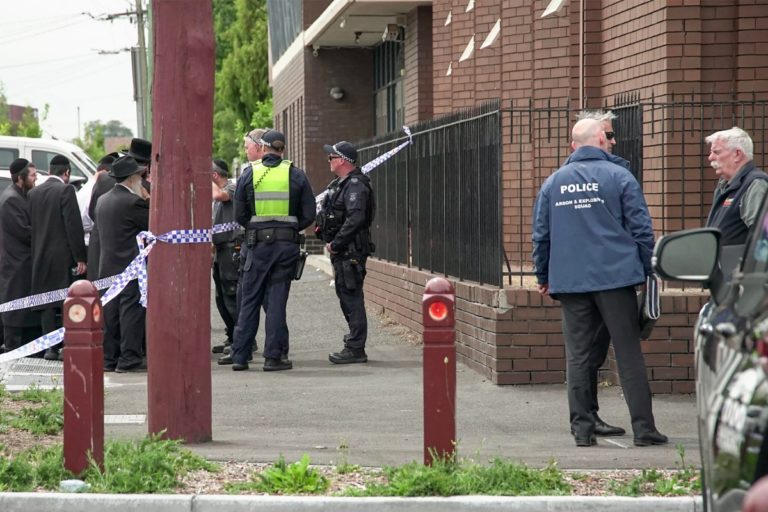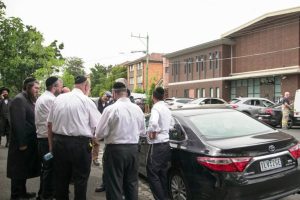
MASK-WEARING ARSONISTS SET AUSTRALIAN SYNAGOGUE ABLAZE

In a predawn incident Friday in Melbourne, Australia, mask-wearing arsonists set a synagogue on fire, according to police, drawing worldwide condemnation.
According to authorities, the Adass Israel Synagogue in the southeast Melbourne suburb of Ripponlea was completely destroyed by fire that started at 4:10 am (1710 GMT Thursday) when some worshippers were already inside.
There were no reported significant injuries.
A witness entering the synagogue for morning prayers saw “two individuals wearing masks”, according to Detective Inspector Chris Murray of the Victorian police arson and explosive squad.
“They appeared to be spreading an accelerant of some type in the premises,” he said.
The synagogue was “engulfed in flames”, he added.
“We believe it was deliberate. We believe it has been targeted. What we don’t know is why.”
Police will increase patrols as they hunt for the arsonists, who were wearing dark clothing, he said.
Detectives would be looking at CCTV footage and interviewing any witnesses, Murray said.
Television images showed firefighters hosing down the embers through the blackened door of the single-storey building, which has a grey concrete facade.
A board member of the synagogue, Benjamin Klein, said a few congregants were sitting and praying inside when the fire started.
“They heard loud banging,” Klein told AFP.
Liquid was poured inside the synagogue and set alight, he said.
“If this had happened an hour later, there would have been hundreds of people inside,” Klein said.
The congregants “ran out the back of the synagogue. One man who ran out — his hand got burnt,” he said.
“The fire was extensive,” he told AFP.
“Inside is completely gutted.”
Books and furniture were destroyed, he said, vowing however that the community would “rebuild”.
Members of the congregation formed a human chain to remove religious items from the damaged synagogue, including Torah scrolls — one of which was brought to Australia from Germany in World War II, the Age newspaper reported.
Klein said the synagogue had increased security over the past 12 months amid safety concerns, without giving further details.
In 1995, the synagogue was damaged by a deliberately lit fire, with walls and Torah scrolls burned.
Klein, who was a child at the time, said he remembered standing inside the damaged synagogue with his grandfather, who he said was a Holocaust survivor.
Prime Minister Anthony Albanese “unequivocally” condemned the fire and said federal police would help the state to investigate it.
“This violence and intimidation and destruction at a place of worship is an outrage,” Albanese said in a statement.
“This attack has risked lives and is clearly aimed at creating fear in the community.”
The prime minister said he had “zero tolerance” for anti-Semitism.
“It has absolutely no place in Australia.”
Israeli President Isaac Herzog said he spoke with Albanese on Friday and expressed his “firm condemnation of the horrific arson attack”.
“I noted to the Prime Minister that this rise and the increasingly serious antisemitic attacks on the Jewish community required firm and strong action,” he posted on social media.
The war in Gaza has sparked protests from supporters of Israel and Palestinians in cities around Australia, as in much of the world.
Executive Council of Australian Jewry president Daniel Aghion said the community had been living in fear of such an incident since the start of the war in Gaza.
“This for us is just evidence of that fear,” he told reporters.
“This is something that is the greatest manifestation of what we have been seeing and hearing in terms of threatening e-mails, threatening social media, threatening letters and all sorts of other material.”
Hamas’ October 7, 2023 attack which triggered the Gaza war resulted in the deaths of 1,208 people in Israel, mostly civilians, according to an AFP tally based on official figures.
Israel’s retaliatory offensive has killed at least 44,580 people in Gaza, mostly civilians, according to figures from the Hamas-run health ministry that the United Nations considers reliable.
AFP
